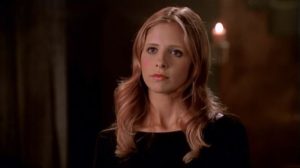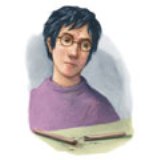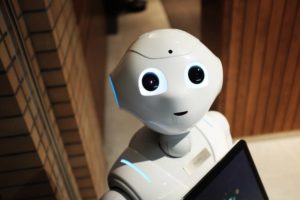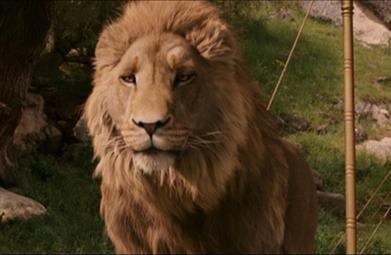I’ve been reading less speculative fiction this year. One of the things that has reduced how much of it I read has to do with the concept of the Chosen One and how overused it is in this genre.
There are a few different reasons why I’m quickly losing interest in stories about people who have been chosen to save their village, humankind, or the entire universe from whatever it is that is threatening their existence.
1. The Chosen One Doesn’t Earn His or Her Place
As I mentioned last month in Scifi and Fantasy Rules That Should Be Broken, heroes in science fiction and fantasy usually aren’t people who have any special training or education. They’re the Chosen One because of who their parents are, what an ancient prophecy foretold, or whether or not Voldemort tried to curse them to death when they were a baby.
If this happened occasionally, I wouldn’t have a problem with it. There is definitely something to be said for showing that heroes can come from anywhere.
The fact that it’s so prevalent, though, makes me feel uneasy. Education and experience are a positive thing. I’d never go to a doctor or dentist who had somehow skipped medical/dental school and was just winging it when it came to diagnosing an infection or deciding if I had a cavity.
So it feels strange for the fate of the entire world to be regularly handed to people who don’t have any unique skills or advanced training whatsoever.
At this point, I’d much rather read about someone who has spent or will spend years studying magic/spaceships/medicine / the dark arts. Show me some of the times they failed terribly and what they learned from it. Let me see them struggle with something that other people in their field generally don’t find difficult like casting a spell or putting on a spacesuit.
I want heroes who have earned the respect they get!
2. The Chosen One Is Often Less Interesting Than Their Sidekicks.
 Case in point: Buffy Summers from Buffy the Vampire Slayer.
Case in point: Buffy Summers from Buffy the Vampire Slayer.
There was nothing unlikeable about Buffy. She was generally a kind and courteous girl, and I was fascinated by her adjustment to becoming the most recent Slayer. (That is, a teen girl who was given supernatural strength and healing abilities so that she could save the world from everything that wanted to destroy it. The previous Slayer has to die before the next one is supernaturally chosen).
The problem was that Buffy’s sidekicks were much more relatable and complex than she was. Giles, her watcher (which is like a personal trainer for mystical stuff), was as mystified by teenagers as he was by American culture in general. His very British reactions to some of the biggest differences between the U.S. and England were hilarious. Willow, her female best friend, was a shy, awkward nerd who had a strong perfectionistic streak. Xander, her male best friend, was a slacker and class clown who hid a lot of painful truths behind his wisecracks and hijinks.
Buffy’s character development simply wasn’t as compelling as the development of those closest to her. She was already athletic, (fairly) popular, self-confident, and tough when the show began. I liked her, but I loved her inner circle because of how much more attention had been paid to the little things that made them unique.
Many Chosen Ones have the same problem. They are so busy saving the world that they often don’t get to develop a well-rounded set of quirks, weird habits, phobias, and/or non-superficial character flaws that their side-kicks get to have.
I want heroes who are deliciously imperfect. Maybe their sidekicks could be stronger, more assertive, or better looking than them. Wouldn’t it be interesting to see how a main character would respond to a friend or assistant who intimidated them a little bit or who was better at certain crucial skills than they were?
3. The Chosen One Never Dies in the End
As much as I liked him, Harry Potter really should have been killed off permanently at the end of Harry Potter and the Deathly Hallows.
 All of the foreshadowing up until that point nudged the readers into this direction. It felt strange to me to see Harry walk away from that final battle. While I knew that J.K. Rowling would try to figure out how to save him because of how rare it is for a protagonist to die in the end, that wasn’t the direction the storyline had been pointing at for all seven books in the series.
All of the foreshadowing up until that point nudged the readers into this direction. It felt strange to me to see Harry walk away from that final battle. While I knew that J.K. Rowling would try to figure out how to save him because of how rare it is for a protagonist to die in the end, that wasn’t the direction the storyline had been pointing at for all seven books in the series.
After the narrator cut away to show how all of his friends put wizarding society back together after Voldemort is finally defeated, there could have been a beautiful scene showing him reuniting with his parents in the afterlife and realizing that he was finally at peace now.
I could also imagine Harry having a conversation with his parents about wanting to go back to Earth. Maybe his mother would tell him that it was impossible, but that he would be reunited with Ron, Hermione, and everyone else he loved after they’d finished living out the long, full lives that wizards usually get to experience.
There could even be a line in there about how time moves quite differently after death so that the audience would know Harry wouldn’t be missing his friends for as long as we might assume.
Yes, this would have been a tearjerker of an ending, but it also would have tied up all of the foreshadowing in the earlier books much more tightly than technically killing Harry off for a few minutes before finding a magical loophole to bring him back to life again.
I want to start genuinely fearing for the safety of the characters I love. It would be so cool to arrive at the final scene of a story and not know who – if anyone – was going to make it out again. No, I’m not saying that every final confrontation has to be a bloodbath. That would quickly become just as predictable as things are currently.
It would be really nice if there were far fewer last-minute plot twists that allowed characters to live when the first 99% of a book or series foreshadowed their deaths, though.
How do you feel about the Chosen One trope? Do you enjoy it? Do you think it’s been played out? I’ll be talking about this on Twitter today if you’d like to chat about it.

 I have two words for all of you this week: forbidden romance.
I have two words for all of you this week: forbidden romance.
 hile I do believe people can change for the better in real life, too, it seems to be much more rare than it is in fiction.
hile I do believe people can change for the better in real life, too, it seems to be much more rare than it is in fiction. Interstellar Travel
Interstellar Travel Robots
Robots Clones
Clones 
 Cryosleep
Cryosleep
 Example: The creepy Fire Swamp in William Goldman’s “The Princess Bride”
Example: The creepy Fire Swamp in William Goldman’s “The Princess Bride”


 How cool would it be to turn a dead planet like Mars into one that is teeming with life? I hope we’ll all live long enough to see at least the first stage of this kind of mission be carried out.
How cool would it be to turn a dead planet like Mars into one that is teeming with life? I hope we’ll all live long enough to see at least the first stage of this kind of mission be carried out. Case in point: Buffy Summers from Buffy the Vampire Slayer.
Case in point: Buffy Summers from Buffy the Vampire Slayer. All of the foreshadowing up until that point nudged the readers into this direction. It felt strange to me to see Harry walk away from that final battle. While I knew that J.K. Rowling would try to figure out how to save him because of how rare it is for a protagonist to die in the end, that wasn’t the direction the storyline had been pointing at for all seven books in the series.
All of the foreshadowing up until that point nudged the readers into this direction. It felt strange to me to see Harry walk away from that final battle. While I knew that J.K. Rowling would try to figure out how to save him because of how rare it is for a protagonist to die in the end, that wasn’t the direction the storyline had been pointing at for all seven books in the series.